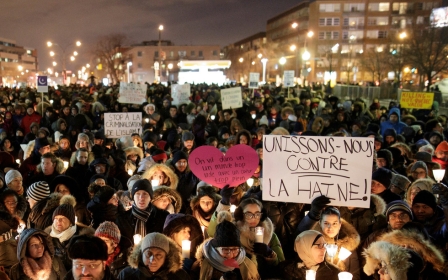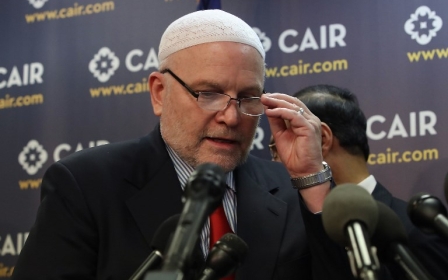Chicago Cubs chairman meets local Muslim leaders after racist email scandal

The Chicago Cubs and the Chicago branch of the Council on American-Islamic Relations (CAIR) have announced a joint agreement to combat Islamophobia, bigotry and racism, after leaked emails embroiled the professional baseball team in scandal earlier this month.
The series of emails, obtained and published by Splinter News on 4 February, contained racist, sexist and Islamophobic rhetoric.
One of the main offenders in the email correspondence was Joe Ricketts, the 77-year-old patriarch of the Cubs' ownership family, who put forward the money to buy the team in 2009.
On Monday, Cubs chairman Tom Ricketts, Joe's son, met with the leaders of CAIR, the Council of Islamic Organisations of Greater Chicago and the Illinois Muslim Civic Coalition to discuss "genuine, meaningful and visible steps toward combating Islamophobia, bigotry and racism", according to a joint statement.
"We are encouraged that the Cubs, led by Tom Ricketts, responded swiftly and genuinely in partnering with us to turn the situation around," said Ahmed Rehab, the executive director of CAIR-Chicago.
New MEE newsletter: Jerusalem Dispatch
Sign up to get the latest insights and analysis on Israel-Palestine, alongside Turkey Unpacked and other MEE newsletters
Tom Ricketts called the meeting "a tremendous opportunity to further our commitment to diversity and inclusion".
The groups also announced a series of planned initiatives meant to foster greater understanding and combat bigotry.
Those projects include the participation of notable Muslims in Cubs and Wrigley Field traditions and the creation of public service announcements featuring Cubs personnel to raise public awareness against Islamophobia.
They also said they plan to continue meeting to come up with a timeline for those projects to be realised.
Islamophobic rhetoric
The emails that sparked the controversy contained scores of offensive remarks made by several people.
In one email, Joe Ricketts said Islam would never be allowed to "become a large part of our society".
"Christians and Jews can have a mutual respect for each other to create a civil society. As you know, Islam cannot do that. Therefore we cannot ever let Islam become a large part of our society. Muslims are naturally my [our] enemy due to their deep antagonism and bias against non-Muslims," he wrote in 2012.
In the same email, he said he was considering "having a book written" with the title "Islam, Religion or Cult".
"It would describe many things about Islam but most importantly describe and define where Islam crosses the line from religion to a cult," he wrote.
The emails also included racist remarks about Black Americans, Hispanics and other minorities, as well as racist, Islamophobic and sexist jokes.
Tom Ricketts condemned his father's rhetoric when the emails were first leaked.
In a statement released at the time, he said the language and views expressed in his father’s emails "have no place in our society".
He has also stressed that his father is "not involved with the operation of the Chicago Cubs in any way".
"I am trusted with representing this organisation and our fans with a respect for people from all backgrounds. These emails do not reflect the culture we've worked so hard to build at the Chicago Cubs since 2009," he said in a statement then.
The Ricketts family bought the Cubs for $845m in 2009.
Joe Ricketts, a billionaire businessman who founded the TD Ameritrade brokerage firm, is also a large Republican Party donor.
In October 2016, NBC Chicago reported that a super PAC founded by Ricketts, Future 45, and a related non-profit group planned to spend millions of dollars on pro-Donald Trump and anti-Hillary Clinton advertisements ahead of the US elections that November.
Middle East Eye delivers independent and unrivalled coverage and analysis of the Middle East, North Africa and beyond. To learn more about republishing this content and the associated fees, please fill out this form. More about MEE can be found here.




